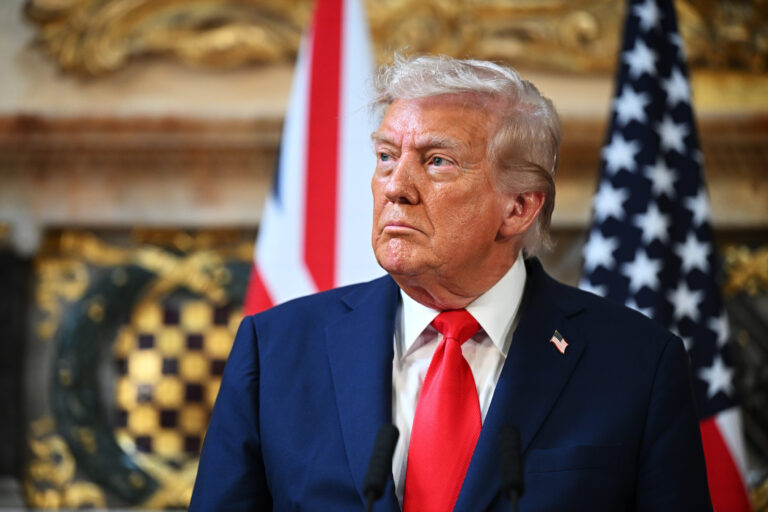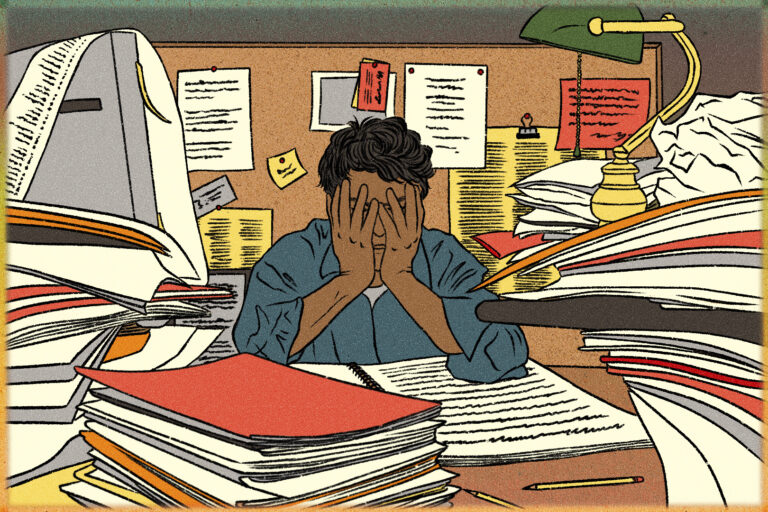
There is growing support in the Senate for new sanctions on Russia intended to pressure the country to wind down its war in Ukraine.
But it remains unclear if President Donald Trump will back a bipartisan Senate measure targeting Russia, despite his mounting public frustration with the war and lack of progress in the U.S.-brokered peace talks between Moscow and Kyiv.
Senate Majority Leader John Thune said Monday that work on the legislation — which already has 82 co-sponsors — could start later this month. But White House press secretary Karoline Leavitt declined Tuesday to say whether Trump supports the bill, a sign the president may be wary of letting Congress take the lead on a crucial foreign policy issue and one he promised to personally end on “day one” of his second term.

Getty Images
Trump views sanctions against Russia “as a tool in his toolbox,” Leavitt said at a White House press briefing. “He’s willing to use sanctions if he needs them, and the Senate and Capitol Hill understand that the president is commander-in-chief.”
The potential friction between the White House and Congress may complicate Trump’s push to force Russia and Ukraine to reach a negotiated settlement to the war.
“He’s frustrated. But the question is, what do you do about it?” said Thomas Graham, a former Russia adviser on the National Security Council during the George W. Bush administration.
The White House is reportedly considering options for new sanctions on Russia as the Senate plans to move forward with the sanctions measure.
The White House did not respond to a Newsweek request for comment.
Trump took office vowing to swiftly end the war Russia started with its full-scale invasion of Ukraine in early 2022. He frequently criticized Ukraine in his first months back in the White House, including in a public shouting match with Ukrainian President Volodymyr Zelensky that took place during a televised Oval Office meeting in February.

Andrew Harnik/Getty Images
But Trump’s rhetoric has shifted recently as he has grown increasingly irked by Russian President Vladimir Putin‘s approach to the peace negotiations. Russia and Ukraine have both continued trading attacks while refusing to budge in negotiations over an end to the three-year-old war.
Trump said Sunday that he would “absolutely” consider new sanctions on Moscow after Russia unleashed a deadly assault on cities and civilian infrastructure across Ukraine. Kyiv responded with a long-planned covert drone ambush on military facilities deep inside Russia. The drone attacks may have crippled as much as a third of Moscow’s strategic airpower, according to Zelensky.
“He’s killing a lot of people,” Trump said of Putin. “I don’t know what’s wrong with him.”
Despite his growing criticism of Putin, it remains an open question whether Trump would follow through on his threats to place new sanctions on Russia — either unilaterally or by endorsing the bill working its way through the Senate.
“It’s unlikely he’s serious about sanctions,” said Elina Ribakova, a senior fellow at the Peterson Institute for International Economics. “So far we’ve seen a lot of pressure on Ukraine, and no pressure on Russia.”

Associated Press
Under former President Joe Biden, the United States worked closely with the European Union and other allies to impose a wide-ranging sanctions regime against Russia in response to the war in Ukraine.
Since the start of the war Western sanctions have crippled Russia’s financial sector, targeting major banks, companies and business leaders with close ties to Putin. The U.S. and EU also enacted steep sanctions on the Russian oil and gas industry, which helps fund Moscow’s war effort. The sanctions include a price cap on Russian oil exports.
Sanctions experts and military analysts have long argued the West could do more by targeting China and other countries that have continued trading with Russia after its invasion of Ukraine, propping up the Russian economy and effectively allowing Moscow to skirt Biden’s sanctions.
The White House and Congress have plenty of tools at their disposal to put more pressure on Moscow, said George Barros, a Russia expert at the Institute for the Study of War.
“We barely apply secondary sections to other Russian-aligned countries that facilitate Russian sanctions evasion,” Barros said. “The Russian sanctions regime is a very leaky sieve with obvious holes that can be plugged. It’s not as if we’ve tried everything.”




